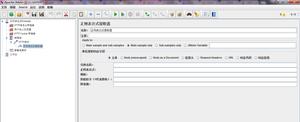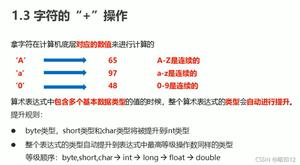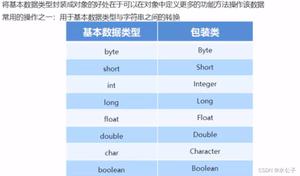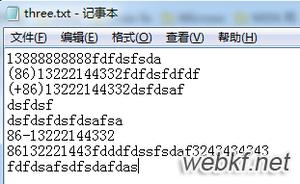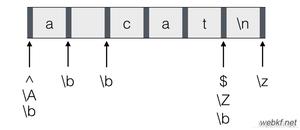Java基础82 jsp中的EL表达式(网页知识)

1、EL表达式的作用
EL表达式的作用:向浏览器输出域对象中的变量值或者表达式计算结果。
语法:${变量或者表达式}
注:
Jsp的核心语法:jsp的表达式<%= %>和jsp的脚本<% %>。
jsp的开发原则:尽量在jsp页面中少写甚至不写java代码,使用EL表达式替换掉jsp表达式。
2、EL表达式的语法
1) 输出基本的数据类型变量
1.1从四个域中获取
${name}
1.2指定域获取
${pageScope.name}
域范围:pageScope/requestScope/sessionScope/applicationScope
2) 输出对象的属性值
${Student.name} 注意:.name 相当于.getName()方法
3)输出list集合
${list[0].name} 注意:[0] 相当于get(下标)方法
4)输出map集合
${map[key].name} 注意:[key] 相当于get(key)方法
3、实例
例1:
1 <%@ page language="java" import="java.util.*" pageEncoding="UTF-8"%>2 <!DOCTYPE HTML PUBLIC "-//W3C//DTD HTML 4.01 Transitional//EN">
3 <html>
4 <head>
5 <title>EL表达式语法</title>
6 </head>
7 <body>
8 <%
9 String name="rose";
10 //放入域对象中
11 //pageContext.setAttribute("name",name);
12 pageContext.setAttribute("name",name,PageContext.PAGE_SCOPE);
13 %>
14 <%-- 打印到页面 --%>
15 <%=name %>
16 <br/>
17
18 <%--从四个域中自动搜索--%>
19 jsp表达式:<%=pageContext.findAttribute("name")%>
20 EL表达式:${name }
21 <br/>
22
23 <%-- 从指定域中获取数据 --%>
24 EL表达式:${pageScope.name }
25 <%--
26 ${pageScope.name} 等同于 <%=pageContext.getAttribute("name",pageContext.PAGE_SCOPE)%>
27 --%>
28 </body>
29 </html>
例2
1 <%@page import="com.bw.entity.Student"%>2 <%@ page language="java" import="java.util.*" pageEncoding="UTF-8"%>
3 <%
4 String path = request.getContextPath();
5 String basePath = request.getScheme()+"://"+request.getServerName()+":"+request.getServerPort()+path+"/";
6 %>
7
8 <!DOCTYPE HTML PUBLIC "-//W3C//DTD HTML 4.01 Transitional//EN">
9 <html>
10 <head>
11 <base href="<%=basePath%>">
12
13 <title>EL输出不同类型的数据</title>
14
15 <meta http-equiv="pragma" content="no-cache">
16 <meta http-equiv="cache-control" content="no-cache">
17 <meta http-equiv="expires" content="0">
18 <meta http-equiv="keywords" content="keyword1,keyword2,keyword3">
19 <meta http-equiv="description" content="This is my page">
20 <!--
21 <link rel="stylesheet" type="text/css" href="styles.css">
22 -->
23 </head>
24 <body>
25 <%-- 1)EL输出对象的属性 --%>
26 <%
27 //保存数据
28 Student student=new Student("jack",20);
29 //放入域中
30 pageContext.setAttribute("student",student);
31
32 //list集合(保存数据)
33 List<Student> list=new ArrayList<Student>();
34 list.add(new Student("rose",18));
35 list.add(new Student("LiLi",18));
36 list.add(new Student("jingjing",20));
37 //放入域中
38 pageContext.setAttribute("list",list);
39
40 //Map集合(保存数据)
41 Map<String,Student> map=new HashMap<String,Student>();
42 map.put("100", new Student("Mark",20));
43 map.put("101", new Student("tian",30));
44 map.put("102", new Student("ergouzi",21));
45 //放入域中
46 pageContext.setAttribute("map", map);
47 %>
48
49 <%--使用EL表达式获取对象 --%>
50 ${list[0].name } - ${list[0].age }<br/>
51 ${list[1].name } - ${list[1].age }<br/>
52 ${list[2].name } - ${list[2].age }<br/>
53
54 <%--
55 list[0]等价于(中括号相对于调用了get(参数)方法)
56 ((list)pageContext.findAttribute("list")).get(0)
57 --%>
58 <hr/>
59
60 <%--使用EL获取Map对象--%>
61 ${map['100'].name } - ${map['100'].age }<br/>
62 ${map['101'].name } - ${map['101'].age }<br/>
63 ${map['102'].name } - ${map['102'].age }<br/>
64 </body>
65 </html>
实例结果图
例3:
1 <%@ page language="java" import="java.util.*" pageEncoding="UTF-8"%>2 <%
3 String path = request.getContextPath();
4 String basePath = request.getScheme()+"://"+request.getServerName()+":"+request.getServerPort()+path+"/";
5 %>
6
7 <!DOCTYPE HTML PUBLIC "-//W3C//DTD HTML 4.01 Transitional//EN">
8 <html>
9 <head>
10 <base href="<%=basePath%>">
11
12 <title>EL表达式计算</title>
13
14 <meta http-equiv="pragma" content="no-cache">
15 <meta http-equiv="cache-control" content="no-cache">
16 <meta http-equiv="expires" content="0">
17 <meta http-equiv="keywords" content="keyword1,keyword2,keyword3">
18 <meta http-equiv="description" content="This is my page">
19 <!--
20 <link rel="stylesheet" type="text/css" href="styles.css">
21 -->
22
23 </head>
24
25 <body>
26 <%--
27 1)算术的表达式
28 + - * /
29 --%>
30 加法运算:${10+5 }<br/>
31 乘法运算:${10*5 }
32 <hr/>
33
34 <%--
35 2)比较运算符
36 > < >= <= == !=
37 --%>
38 ${10>5 }<br/>
39 ${10<5 }<br/>
40 ${10!=10 }<br/>
41 <hr/>
42
43 <%--
44 3)逻辑运算符
45 && || !
46 --%>
47 ${true && true }<br/>
48 ${true || false }<br/>
49 ${!false }<br/>
50 <hr/>
51
52 <%--
53 4)判断
54 null 或者 空字符串 :empty
55 --%>
56 <%
57 String name="hello";
58 pageContext.setAttribute("name",name);
59 %>
60 判断null: ${name==null }</br>
61 判断空字符串: ${name=="" }</br>
62 判断:${name==null || name=="" }<br/>
63 另一种判断空的写法:${empty name }
64 </body>
65 </html>
66
原创作者:DSHORE 作者主页:http://www.cnblogs.com/dshore123/ 原文出自:https://www.cnblogs.com/dshore123/p/10163207.html 欢迎转载,转载务必说明出处。(如果本文对您有帮助,可以点击一下右下角的 推荐,或评论,谢谢!) |
以上是 Java基础82 jsp中的EL表达式(网页知识) 的全部内容, 来源链接: utcz.com/z/394259.html

